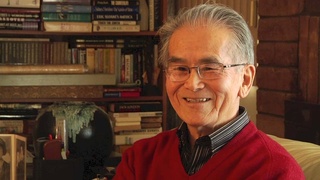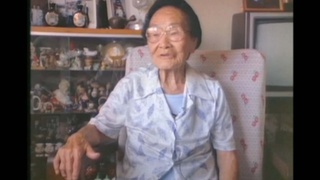Interviews
Japanese American, not Japanese
Yeah. I was just reading the complaint, and in one section she had used the word Japanese Americans to refer to all Japanese Americans. I said, “Wait a minute. The Issei are not Japanese Americans.” And she just said, why not? They’ve been living here—after they moved here, they haven’t returned back to Japan, so they made America their country. So they are Japanese Americans. And I soon thought about that, and I say by golly, you’re right. But I had been so used to this [as a] separation of the Issei.
See in contrast now, (laughs) one of the things that grates is [when] both John McCloy1 and Colonel Karl Bendetsen2 testified with the commission. They consistently referred to us as Japanese—Japanese this, Japanese that. And I say wait a minute. I’m sitting there where the reporters do their stuff. And I say wait a minute, we’re not Japanese. We’re Japanese Americans. I’m not Japanese. (laughs) Don’t call me Japanese. Then in our second appellate experience in the Federal Circuit, the attorney for the government got up and kept referring to us as Japanese. I was almost about to go up to him after the hearing and say, hey, Mr. Bybee—or whatever his name was—I’m not Japanese. Please don’t call me Japanese. (laughs)
I’m just as American as you are. Don’t call me Japanese. (laughs) It’s an insult. I don’t know why they do that. It’s probably the way they perceive us, but I take great offense to that because it’s so inaccurate. It’s inept. And [I want to say] why do you, who is so intelligent and so well educated, why do you have to be so inept on something like that? Isn’t it obvious? It’s interesting. I’ve talked to some people from Japan, and we talk for a while, and we talk for a while. After a while they say—they say in Japanese, of course—they say, “Oh, you really are not Japanese, are you?” I say, “Yeah, that’s right. I’m not Japanese.” (laughs)
Notes:
1. John McCloy (1895-1989) was, as assistant secretary of war, one of the primary government officials responsible for formulating and carrying out the government's policy of the incarceration of Japanese Americans during World War II. He played an important role in altering racist underpinnings of Lieutenant General John L. Dewitt's Final Report on removal of Japanese Americans. McCloy sent the report back for revision to indicate military necessity in justifying the government's position on mass removal and incarceration. All earlier drafts of DeWitt's Final Report were ordered destroyed and unmentioned. Discovery of an extant copy in Karl Bendetsen's personnel file indicated its existence. McCloy's actions did much to uphold the Supreme Court's decisions in Korematsu v. U.S., Yasui v. U.S., and Hirabayashi v. U.S.
2. Karl Bendetsen (1907-1989) was one of the chief architects in devising the plan for the mass removal of West Coast Japanese Americans during World War II. Employed as chief aide to Lieutenant General John L. DeWitt, Bendetsen served as liaison between the War Department and the Western Defense Command (WDC). Bendetsen was an extremely vocal critic of the Redress Movement.
Date: June 12, 1998
Location: California, US
Interviewer: Darcie Iki, Mitchell Maki
Contributed by: Watase Media Arts Center, Japanese American National Museum







